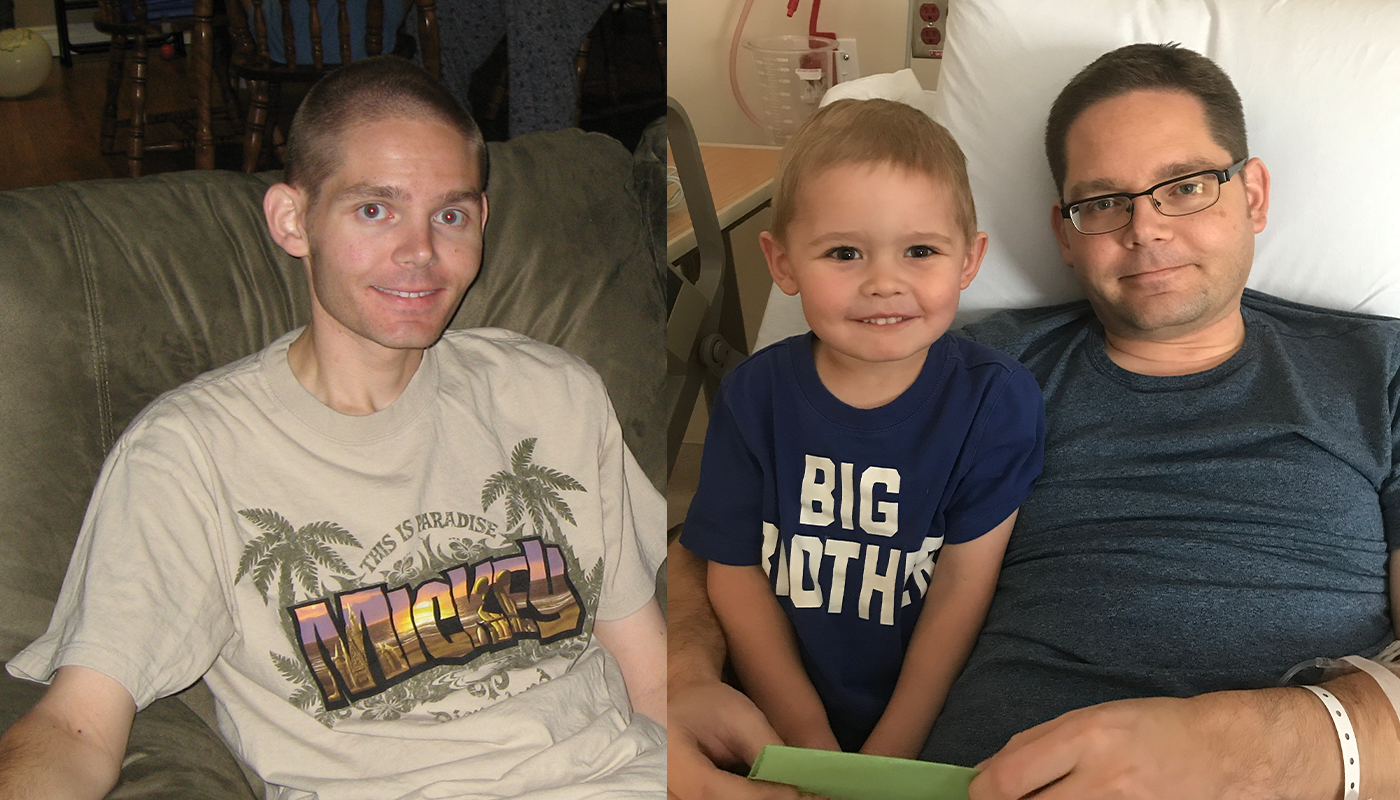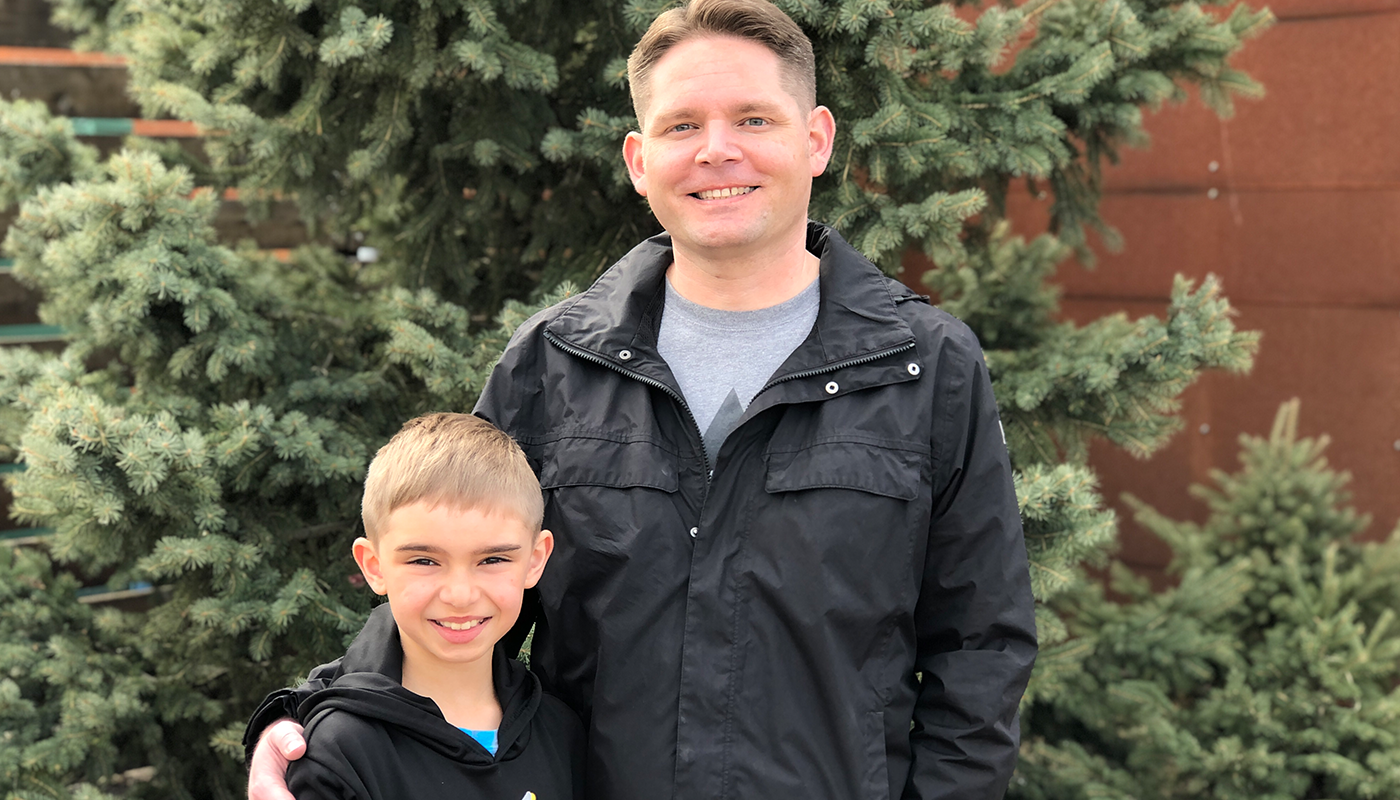Living with a Chronic Illness: My Challenges with Crohn’s Disease
Living with a chronic disease can be challenging. The paths you take are often unique; every disease presents its own challenges, and every individual has their own experiences and barriers that they must overcome. Today I plan to share some of my own experiences in the hope that I can offer some helpful advice to those that may need it.
Disease Diagnosis
When I was 15 years old, I knew something was wrong. My abdomen was constantly in severe, debilitating pain, and I was plagued by frequent bouts of diarrhea; both issues meaning that I was filled with anxiety every time I left the house to go to school or visit with my friends. The pain and diarrhea also meant that I ate very little, and soon began to lose a tremendous amount of weight while constantly feeling lethargic and ready to fall asleep due to my low energy levels. At that age, it’s challenging to speak up for yourself and seek out the appropriate medical attention that you require. Thankfully, I had a parent (my mother) who became a strong advocate for me. I was taken to our family doctor, tests were done, and when they came back inconclusive my mother pushed for more. She never once took no for an answer – her child was suffering, and she wanted a diagnosis. When things started pointing towards inflammatory bowel disease, or IBD, my doctor made a referral for me to see a gastroenterologist. One colonoscopy and a few biopsies later (not a fun experience at any age, let alone as a teen), my diagnosis was confirmed as Crohn’s disease. To learn more about Crohn’s disease, and IBD in general, click here to read a high-level overview.
Advocacy from Parents
This brings me to my first bit of advice, which is directed more towards parents of children living with illness, particularly younger children: listen to them. Listen to both their words and their body language. Encourage open dialogue with them so they know they don’t have to hide that they’re not feeling well; conversely, let them know that it is unacceptable to fake illness to get out of school or work. Establish a level of trust with them, let them know that you are their biggest supporter and will advocate for them when they themselves cannot.
This doesn’t stop when they become adults. When we’re young we feel invincible, particularly if our illness is under control. When I was in university, I wanted to do everything that my friends were doing. That meant not taking care of my body by exposing it to late nights with very little sleep and eating/drinking (especially drinking) things that only served to aggravate my symptoms further. When my health started to crash in my 3rd year of university my mother once again stepped in. She made sure that I was taking care of myself, took me to the hospital when I required it, and pushed me to recognize what my limitations needed to be when I was sick. Being an advocate for your child really does make a significant difference in their life!
Taking Care of Yourself
Crohn’s disease typically presents itself as an endless cycle—periods of “flare” where your symptoms are out in full force, and periods of “remission” where you almost feel like a normal human being, with little to no symptoms. Ideally, you’ll find a strategy and medication that will keep you in remission for as long as possible, but in reality, you’ll most likely have a flare of disease where you start to feel like your body is trying to tear itself apart. I’ve experienced many of these cycles, and think that my advice can be broken down into 3 broad categories:
- Taking your medications
- Maintaining your mental health
- Dealing with surgery
Taking your Medications
First piece of advice—take your medication! It’s easy to take your medication when you’re really sick and can feel the medication working and eliminating your terrible symptoms. It’s much harder to take your medication when you’ve been in remission for a few years and don’t really feel like you need it anymore (particularly if there are any side effects that you experience with your medication or if it feels inconvenient to take it).
If you do experience side effects, speak to your specialist about how to reduce them or if there are other medications you can try instead. Early on during treatment, there are many different options that they can explore with you. Unfortunately, one of the most effective treatments for IBD are the biologic medications, and administration can be challenging as they are only available as intravenous infusions or as injections. Thankfully, there may be options to make it easier for you. Intravenous medications can often be delivered in specialized infusion clinics that are significantly more relaxed environments compared to hospitals, and injectable medications can be self-administered. It can be quite daunting to administer an injection to yourself, but I strongly encourage you to learn from the nurses how to do it and “take a stab” at it. Once I overcame my fear, I realized how much more control I had of the situation and appreciated the convenience of not needing to visit a nurse each time my injection was due (particularly as it was on a frequent basis).
Finally, make sure you are checking in with your doctor regularly, even if your medication is working successfully. Some of the medications used for Crohn’s disease can have very serious side effects if they are not monitored closely. As an example, I was hospitalized and put into isolation in my 3rd year of university as my medication had almost completely depleted my white blood cells, putting me at a huge risk of developing a very serious infection. Routine blood work may have caught this earlier, and I could have discontinued the medication before it became an issue.
Maintaining your Mental Health
Your mental health has a tremendous effect on your whole body’s health. Stress is one of the biggest triggers for patients with Crohn’s disease to develop a flare; therefore, it is very important to try and minimize the stressors in our lives. This is easier said than done, as our modern lives seem to constantly be pushing us into stressful situations – school, work and relationships can easily make us feel overwhelmed. It’s important to set aside time to do something you really enjoy that you find relaxes you. For myself, I like to go on long quiet walks, go camping, socialize with friends, and having a quiet time at home by myself watching movies or reading (a huge challenge with my young children). Warm baths are also amazing when you’re symptomatic and your abdomen is constantly cramping. Ensuring that all of your basic needs (e.g., getting enough rest) are met is also important. It’s okay to give yourself permission to be selfish every once and awhile. We spend so much of our lives trying to make others happy that we sometimes forget about our own self-care.
Look for a career/job with a lot of flexibility if possible. Being able to go to medical appointments or a drug infusion during the workday or being able to take sick time and move your hours around to accommodate your health can prevent a lot of stressful situations. When in school, don’t be ashamed to seek out accommodations when you need them. You may be able to postpone an exam or get extra time to complete an assignment if your teacher is aware of your situation.
Finally, don’t get discouraged when your medication stops working. Over my 25 years with Crohn’s disease, I have been on almost every medication available at some point. I’ve had great success with some, but inevitably they will usually stop working and I need to try something else. Take things a day at a time and manage your health as best you can while waiting to find something else that is able to get your symptoms under control.
Dealing with Surgery

Most individuals with IBD will have surgery at some point in their life. My first surgery was 17 years after my initial diagnosis; I had so much scar tissue and inflammation in my intestine that I started bleeding regularly and required a bowel resection. This means that my abdomen was cut open and the diseased portions of my small and large intestine were removed, and the remaining portions were connected back together. To allow time for it to heal, I was given a temporary ileostomy, where a portion of my small intestine was diverted out of my abdomen, and I had to wear a pouch to collect waste. I experienced a number of complications while in hospital (include a blood clot in my lung) that resulted in me being in and out of the hospital for close to 2 months. Eventually, I did heal, and my ileostomy was reversed about 10 months later. A few years after that, in 2019, I experienced frequent blockages in my intestines that resulted in two additional surgeries and another ileostomy that I still have to this day.
My time in and out of the hospital taught me many things. First, you are much stronger than you ever thought possible. During the early days, you’ll sometimes feel like you take a step backward for every two steps forward, but you’ll eventually make progress and get better. Lying in bed feeling sorry for yourself only prolongs the process and puts you at risk of developing complications. Once out of hospital, try to get back to your usual routine but don’t push yourself to the point of injury. Finally, you will quickly learn who the most important people in your support network are, and who is willing to go out of their way to help you in any way they can. Connect with these people, don’t be too proud to ask for help, and be thankful and show appreciation for everything they do for you.
Share Your Story

In conclusion, my final piece of advice is to share your story and experiences with others! I avoided talking about my disease with others for far too many years. After my first surgery I finally made the decision to seek out a support network. I began volunteering with Crohn’s & Colitis Canada and met other individuals with Crohn’s disease or ulcerative colitis for the very first time in my life. I began to raise funds for research into a cure and volunteered as President of my local chapter for a few years. My children also began fundraising and my oldest son and I were recently made honorary co-chairs of the Crohn’s & Colitis Canada annual fundraising “Gutsy Walk” this past summer. Sharing my story with others has given hope to many newly diagnosed individuals and I continue to raise awareness through any way I can in the hope that greater recognition and support will be given to these challenging diseases. Hopefully sharing my experiences and advice with you today will be able to help you or someone you know deal more effectively with a chronic disease.